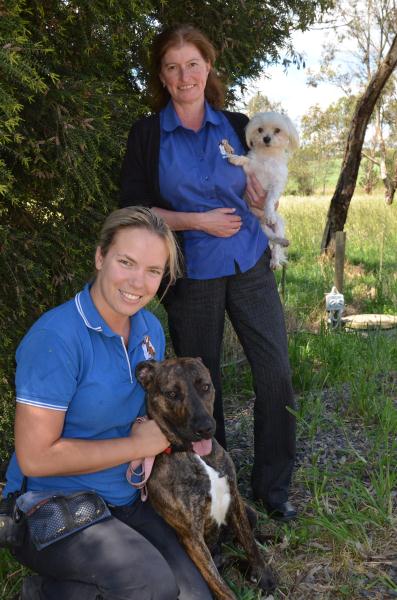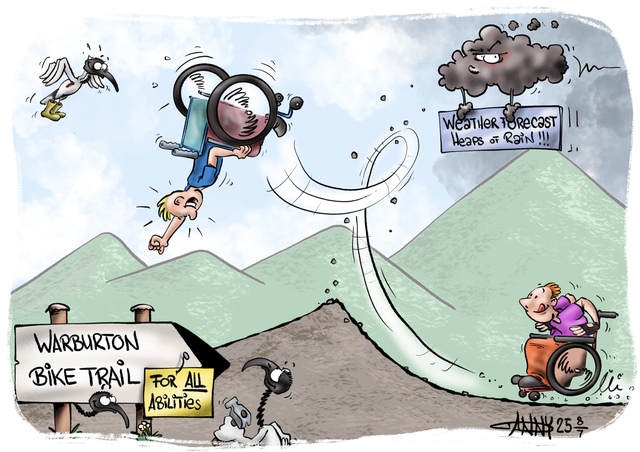By JESSE GRAHAM
COLDSTREAM animal welfare workers have balked at law changes clamping down harder on residents suspected of owning restricted dog breeds.
An amendment to the Domestic Animals Bill passed the lower house of the Victorian Parliament on 28 November and is set to pass the upper house in the near future.
Coldstream Animal Aid spokesperson Debra Boland said the laws, which she said shifted the onus of proof, will pinch many dog owners.
Under the amendment, if an animal is declared by a council officer to be a restricted breed, such as a pit bull terrier, then it will be the owner’s responsibility to prove otherwise.
“Most of the animal welfare community were against it, and we stand by that,” Ms Boland said.
She argued that determining a dog’s breed is often difficult due to crossing of breeds and that, often dogs that look similar to a restricted breed get lumped in with the group.
“If it looks like a duck and quacks like a duck, we have to call it a duck,” she said.
“You can have an educated guess, but that’s all it is at the end of the day.”
Dog owners’ ability to appeal the decision to the Victorian Civil and Administration Tribunal (VCAT) will also be restricted, with the appeal time for restricted breed declarations halving from 28 to 14 days.
However, a spokeswoman the Department of Environment and Primary Industries (DEPI) said dog owners should be sure of their dog’s breed and be able to prove its breed from the moment they get their dog, to avoid potential misunderstandings.
“It remains that restricted breed dogs are illegal and people should not be purchasing or rescuing dogs that may fit the standard unless they do have the relevant papers as to the type of dog they have,” she said.
The amendment is a result of coronial recommendations following the death of four-year-old Ayen Chol, who was mauled by a dog.
Other features of the 38-page amendment include a clamp down on those people breeding dangerous dogs.
Breeding a restricted breed dog will become a criminal offence under the changes to the law and can be punished with up to six months in jail.
Tough penalties will also apply for owners of dogs of any breed involved in attacks that seriously injure other animals or people, with magistrates enforcing a 10-year ownership ban on the dog owner.
This penalty can be made in addition to or instead of penalties applicable to the offence.
Ms Boland said that dog attacks were a serious issue that can often result from poor care of dogs, and that a penalty should apply to reckless owners.
“In order for their dog to be anti-social or over-protective, the owners have let the dog down in its life skills, and most people do the right thing – there is that element of people attracted to having a tough, mean dog,” she said.
“I think that anybody who has been attacked by a dog knows how frightening it is.
“I think that is something that should have some sort of punishment, but it’s all about enforcement – it’s a hard thing to do.”
Following legislation passed in 2011, any dog found to fit the criteria of an unregistered restricted breed dog can be seized by authorities and put down.
The amendment requires any owners of a restricted breed dog, dangerous dog or menacing dog moving to a different municipality to inform the new council within 24 hours of the move.
The DEPI spokeswoman said the final recommendation from the coroner is that veterinarians be required to report restricted breeds to authorities, but this was not included in the amendment.
She said the State Government is working with the Veterinary Practitioners Registration Board of Victoria and the Australian Veterinary Association on how to implement the change.







